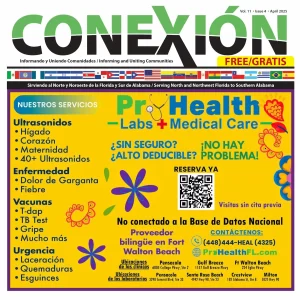By Gabriela Calvi – Epidemiologist| Educator and Health Advocate| Podcaster “Good Morning Health”
There are rituals everywhere in the world. However, the human ritual requires a fixed behavior, with a symbolic meaning. In the Old Testament, we find a deep symbolism of hand washing. Where the priest washes his hands before starting a mass.
The World Health Organization Guidelines on Hand Hygiene in Health Care they cite specific times and activities when handwashing becomes obligatory in Islam, Judaism and Sikhism, as well as in Ghana and other West African countries. In religion and literature, washing your hands purifies, cleanses guilt, eliminates sin, or other contamination.
Washing your hands became our control ritual. At the same time accompanied by mouth covering and social estating. But always washing our hands when we go out, go home, touch anything, anywhere. The gloves quickly got dirty and became suspicious, but hand washing remained a fundamental rite of purification. As a method of control in times of pandemic.
The handwashing ritual came more closely for the little ones in the house, with the arrival of the famous song “Happy Birthday” all the time, twice, to reach the full 20 seconds for ablution. For a moment I came to think, to sing him birthday, dear COVID-19, but he was definitely being pessimistic in changing the true meaning of the song.
However, from 1847, hand washing occupied an honorable place in Western medicine, when Ignaz Semmelweis discovered that it reduced childhood fever. However, the frenetic pace of 20th-century hospitals made handwashing more sporadic than routine. When law enforcement officials began to focus on hospital-acquired infections, they ordered hand washing between each patient contact as part of national patient safety targets in 2003.
Overnight, in hospitals, disinfectant dispensers began to bloom and expand rapidly everywhere. The culture of hand washing changed abruptly, due to the unexpected pandemic of COVID-19. Both the hospitable culture, the patient and all medical staff changed completely, as the pandemic reminded us again of the importance of good hand washing.
Therefore, the simple gesture of washing your hands with soap and water can be key to the survival of millions of people, especially the little ones. Children are vulnerable to the effects of diarrhoea and respiratory infections, whose diseases can be easily and economically prevented with some soap and water.
We must take into account that our hands are a paradise for all kinds of microorganisms: whether bacteria, viruses or fungi, they are usually installed in them easily. In the same way, we know very well, that with our hands we touch everything, becoming a transmission agent of the first order. With the great difference of surfaces and objects, the hands are hot and moist surface, with traces of sweat and peeling of the skin that act as a magnet for all kinds of microorganisms, including places of harmless appearance. A vivid example, would be the surface of a mobile phone, on the phone can host 30 times more bacteria than a toilet.
By touching any object and surface with our hands, we are leaving behind the well-known “microbial footprint”, a trail that contaminates the next person we touch, which contributes to exponentially multiplying the potential of micro-tracks. For this reason, every time we don’t wash our hands we are boosting microbial contamination. Simply put, you’re giving an infectious agent freedom to camp wherever he wants without finding a barrier to stop him. The only way to end germs is to wash our hands with soap and water. Because when you touch something, germs stick to oils and hand fats, which can’t go away with water alone. Therefore, to get rid of all those fats and microorganisms it is necessary to take the time necessary for your hand washing ritual.


